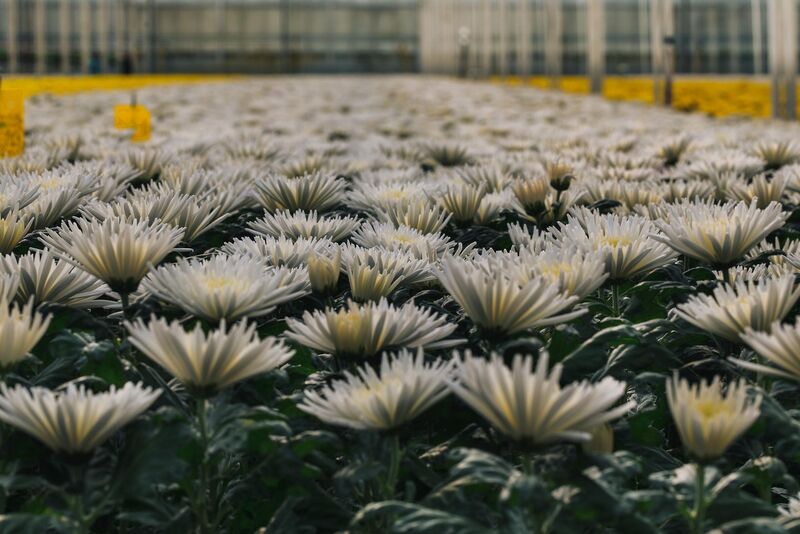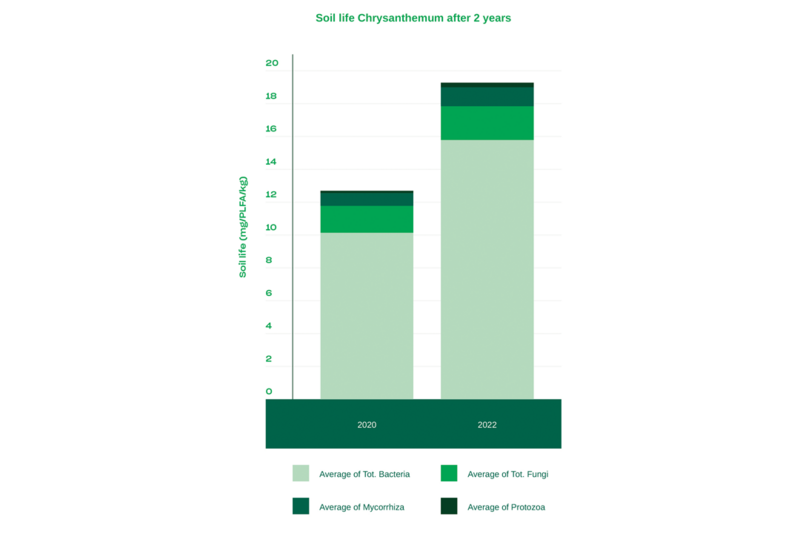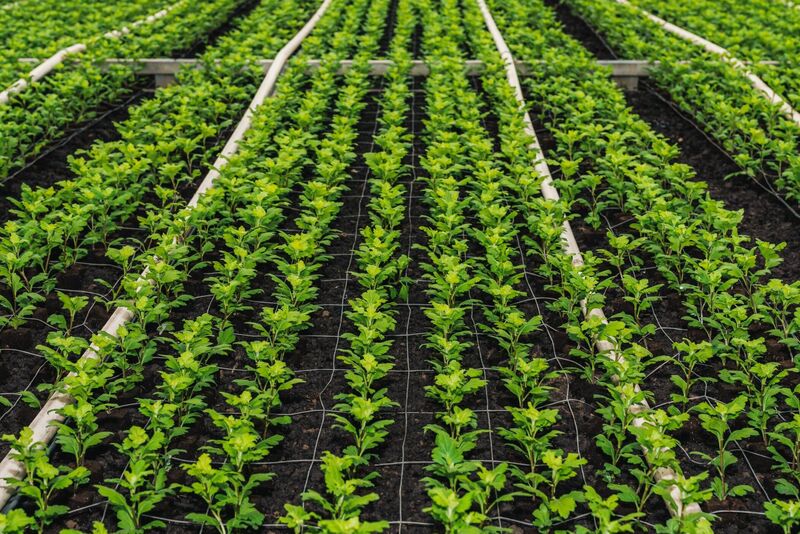
Crops thrive on soil biodiversity
At Koppert we know that our biological solutions are beneficial for crops, people and the planet. What we are now increasingly aware of, is how our organic soil improvers bring back the natural balance in soil life. Continuous research shows that plants thrive on the resulting biodiversity in the soil.
Ellen Klein is Koppert’s consultant for resilient growing and has studied the effect of Koppert’s products on biodiversity for some time: ‘By using our organic solutions to feed the soil, we are changing the biodiversity of the soil, and that results in more resilient plants and less reliance on synthetic fertilizers. It’s a bonus for the crop and biodiversity at the same time.’
‘Recent research has shown that the biomass of soil life improves by approximately 50% when organic soil improvers, such as Vidi Funda, are introduced into the soil. We see that the number of soil bacteria and other microbes increases rapidly over a relatively short period of time. Not only the mass of microbes, but also the variety changes into more resilient species,’ Klein remarks. ‘This improves the soil quality and biodiversity, and has a positive impact on the plants’ health.’
Nutrition strategy
‘Too many greenhouse growers still use steam to get rid of unwelcome pathogens. In the process they not only destroy pathogens, but most of the soil life, including the beneficial bacteria, fungi and other microbes that protect the plant against pathogens,’ Klein explains. ‘Steaming the soil, means that you end up using chemical pesticides to control the remaining pests in the soil.’
‘The steaming process is expensive – especially since the energy price hikes. Using organic soil improvers helps growers save on energy costs, labour and time. Sustainable alternatives, like the application of Vidi Funda, allow growers to build up a beneficial nutrition strategy that improves plant resilience against harmful pathogens and abiotic stress. The yield improves and the soil profits,’ Klein adds.
Koppert’s organic soil improver, Vidi Funda, includes organic matter such as legumes, maize, sunflower seeds, seaweed and minerals extracts, and has been developed to feed microbes in the soil. A healthy soil life means there are more microbes present to compete with harmful pathogens in the soil. The competition for food and space in the soil weakens pathogens and ensures plant resilience.
Success in Chrysanthemums
‘Vidi Funda was introduced in 2010 and applied in addition to standard fertilizers at the time. Since 2019, it has gradually replaced a part of these synthetic fertilizers,’ Klein explains. ‘We have had some good experiences with Chrysanthemum growers, and also in soft fruit such as strawberries.’

Increased resilience: Soil life in chrysanthemum after 2 years
One of the Netherlands biggest Chrysanthemum growers, Rodalin II, in Zuilichem, is now using the Vidi Funda nutrition strategy on 7,5 hectares. This follows successful trials using this organic soil improver over a period of more than two years. In the meantime, five other growers in the region have adopted this resilient growing strategy that effectively lowers pest pressure and improves soil health.
‘Resilient growing brings beautiful surprises: curious what it brings us in the near future!’
- Rochus van Tuijl, Rodalin II
Both greenhouse and outdoor crops benefit
Soil biodiversity has become a key element when it comes to plant health and resilience and has even proven to significantly improve yield in some crops. Independent trials conducted in outdoor strawberries, for example, have shown an increase in yield of more than 25%.
The boost to soil life not only improves plant health and resilience, but actively fights pathogens in the soil, reducing the reliance on synthetic fertilizers and pesticides while limiting the leakage of nitrates and phosphates into the groundwater.
